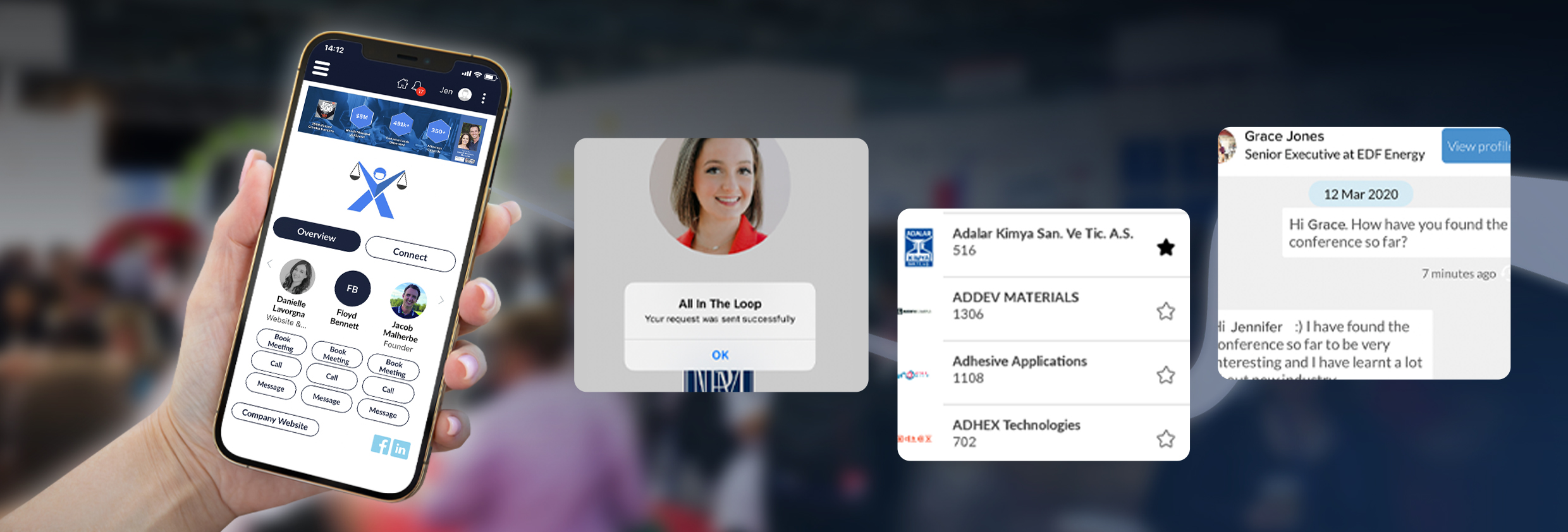Mobile event apps: Shining success or flash in the pan?
Mobile applications are an integral part of modern life, with over 6.3 billion smartphone users worldwide using apps to play games, shop, network and so on.
In the pandemic, app development underwent something of a renaissance, with the number of events held on one video-conferencing app alone reaching 62 million – that’s 90% more demand than before COVID.
With the vast majority of in-person events cancelled, virtual events became the norm, with associated platforms claiming a 1000% increase in use. Once restrictions eased somewhat, the world moved tentatively pack to in-person events, but allowances had to be made for safety. Enter the mobile event app.
Apps naturally lend themselves to in-person events, with capabilities that made events safer during the pandemic. As apps can condense all of an event’s resources, ticketing, networking and even Q&A functions onto a mobile device, people could still participate at in-person events whilst limiting touchpoints and the risk of infection.
As restrictions begin to lift completely in the UK, it would make sense for the popularity of mobile event apps to suffer, but the opposite is true.
Demand for apps is at an all-time high, with 435,000 applications downloaded every minute worldwide, and attendees are starting to expect an app when attending a conference, tradeshow or other professional event. About 84% of the world’s population owns a smart phone, including 92% of UK residents, so effectively all of your attendees will use apps.
So, what makes mobile event apps so appealing to participants, and why should organisers embrace them?

Sustainability
Certain features of mobile apps helped make events safer during a pandemic; those same qualities can make events more sustainable. An app can provide a digital alternative to traditionally paper-based documents like tickets, programmes, abstracts and business cards. Instead, organisers using an app can cut out all this paper waste, which is no small feat.
Paper accounts for 20% of all waste in the UK and the level of deforestation this leads to is shocking. About 12.5 million tons of paper gets used each year in the UK, requiring enough trees to cover an area the size of Wales (21,000 square kilometres). If we used just 10% less paper in a year, we could save up to 5 million trees.
In-person events are serious offenders in terms of the UK’s paper problem. The average tradeshow will generate about 170 trees worth of paper waste, with attendees given up to 10 pounds of paper each.
By eliminating this paper waste, events which use a mobile app can claim to be more sustainable and have a lower carbon footprint than traditional paper-based events. This can provide invaluable PR, attract sustainably minded attendees and benefit the planet.
Convenience
There are some aspects of events which are hard to enjoy: waiting for ages with your hand in the air to ask the speaker a question, fumbling through several documents until you find one that’s relevant, navigating a huge venue to attempt some meaningful networking. The right mobile event app can revolutionise these activities, making them far more convenient.
In-person event apps can be customised with networking features, like filterable lists of attendees, to make identifying and contacting relevant professionals much easier. Q&A functions can be included, so attendees can ask questions live via the app and have them answered in real time by speakers. Likewise, all relevant documents can be accessed from a tab within the mobile app, taking the stress and frustration out of attending.
Events are changeable and a lot can happen to throw them out of kilter, so it helps to be adaptable. Where traditional methods fail at this, event mobile apps thrive. For example, if a speaker overruns and the schedule has to change, this renders a printed paper agenda useless. However, a mobile app can be updated immediately to reflect any time changes and can even send push notification to attendees, informing them of the new schedule.
Engagement
Some organisers are reluctant to champion innovations like apps, out of concern attendees will not engage with them. In actual fact, mobile event apps regularly increase engagement by up to 33% and can even track user activity to prove their worth.
By including programmes, agendas, tickets and other essential resources on an app, organisers can guarantee that attendees will use it. Each time a user opens the app, organisers can track their activity, including what was clicked on, how long different pages and tabs are open and what resources are used.
Additionally, gamification, whereby elements of game playing are incorporated into the app, can be an excellent way to drive engagement. For example, features of a scavenger hunt can be built into the mobile app, where attendees try to scan as many different exhibitor QR codes as possible to win a small prize. Not only does this add some novelty and excitement to the event, but it encourages the dissemination of exhibitor information to a large network. Hence, attendance at events with mobile apps tends to be 20% higher than at those without one.
This increased engagement and trackable activity makes events with mobile apps particularly attractive to sponsors. Banners, splash screens and even dedicated tabs can be used to advertise sponsored content, with organisers able to guarantee exposure because using the app is essential for attendees. Events with a mobile app boast 17% more sponsorship sales, which can greatly improve profitability, and analytics gathered by the app can even be sold on to sponsors to generate additional revenue.
